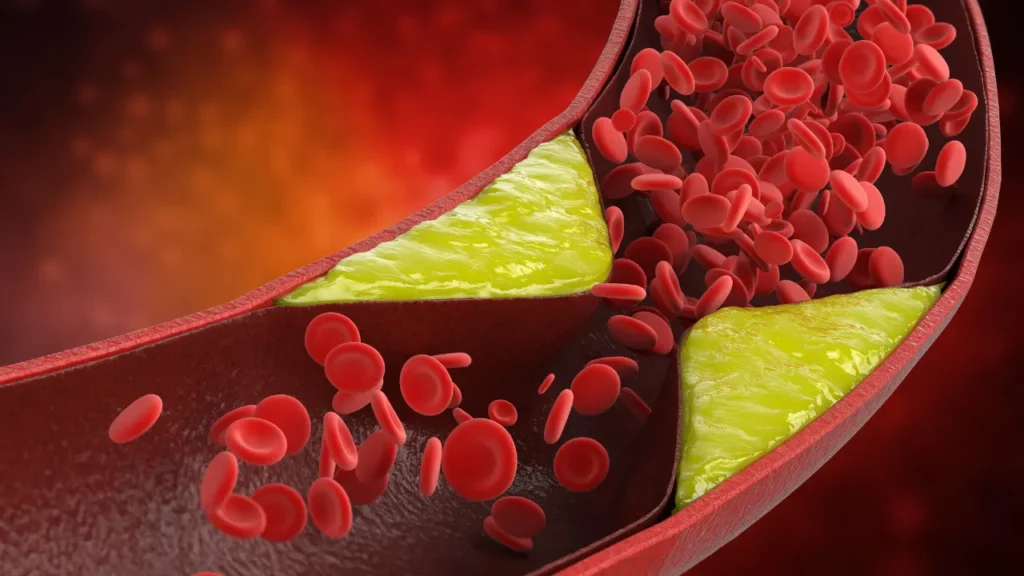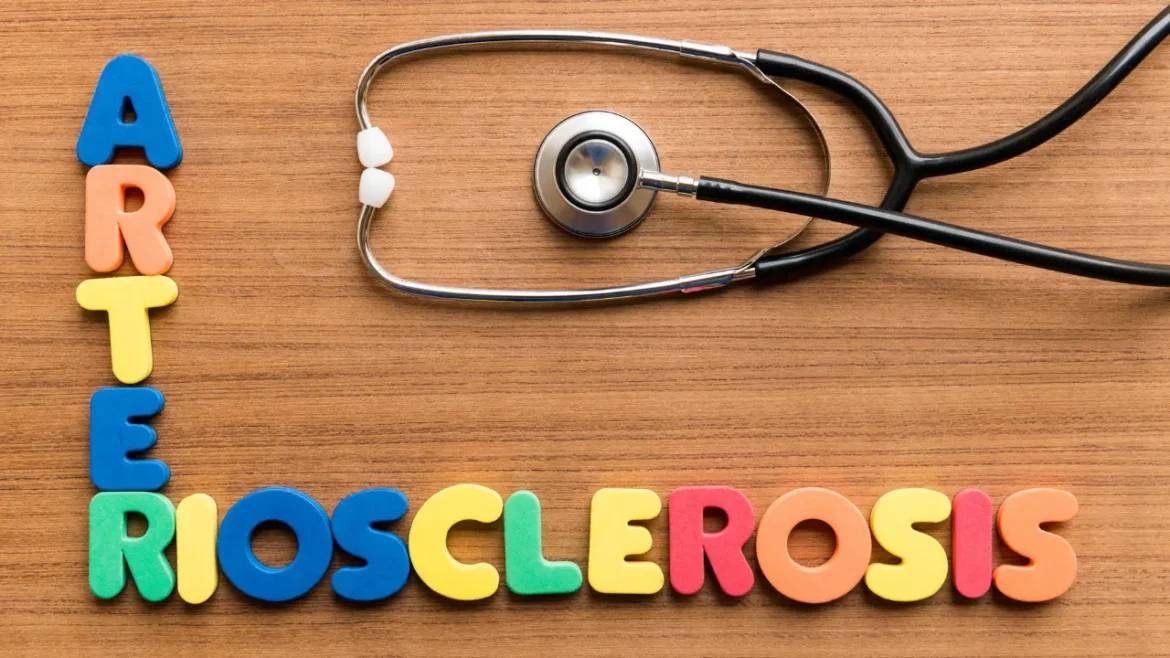Description
A chronic disorder called arteriosclerosis causes the artery walls to harden and accumulate plaque, which reduces blood circulation and the level of nutrients and oxygen that may reach important tissues and organs. The three main subtypes of arteriosclerosis are calcification, atherosclerosis, and arteriolosclerosis. The most prevalent type, atherosclerosis, causes plaques made of fibrous tissue, lipids, and cellular debris to develop inside the walls of the arteries. The process of calcification involves the buildup of calcium in artery walls, which causes them to harden. Small arterioles and arteries are the most commonly affected by arteriolosclerosis, which causes thickening and constriction in these blood vessels.
You May Also Like:
THE CONNECTION BETWEEN MUSHROOMS AND COVID: 5 GREAT REASONS TO TRY FUNCTIONAL MUSHROOMS
FINDING THE BEST MEDICINAL MUSHROOMS: 5 GREAT THINGS TO LOOK FOR IN A TOP-QUALITY MUSHROOM PRODUCT
Arteriosclerosis: Description, Causes, and Treatment Protocol is an original (HealthXWire) article.
Possible Causes
Some possible causes of arteriosclerosis include: –
Hypertension: Consistent high blood pressure may damage the arteries’ inner lining, making plaque development more likely.
High cholesterol levels: Increased blood levels containing LDL cholesterol may cause deposits of cholesterol along with other materials in the artery walls, which helps to build plaque.
Smoking: Arteriosclerosis can occur due to, the chemicals in cigarette smoke damaging and inflaming blood vessels.
Obesity: An unhealthy diet, along with being overweight, might raise the possibility of arteriosclerosis by causing elevated levels of cholesterol, hypertension, and inflammation.
Diabetes: Blood sugar levels are frequently higher in diabetics, which can harm blood vessels and hasten the development of arteriosclerosis.
Sedentary lifestyle: Sedentary behavior and inactivity are risk factors for arteriosclerosis because they might result in high blood pressure, weight gain, and abnormal lipid levels.
Genetic factors: Arteriosclerosis development in certain individuals may be genetically predisposed. Those with specific genetic predispositions may be more susceptible to getting a heart disease which includes genetic abnormalities that impact lipid metabolism and a family record of cardiovascular disease.
Inflammation: Arteriosclerosis can progress more quickly if there is ongoing inflammation inside the artery walls brought on by illnesses like autoimmune infections or disorders.
Age: The prevalence of arteriosclerosis increases with age. Atherosclerotic hardening and artery narrowing can be caused by the arteries’ gradual deterioration over time.
Other factors: Arteriosclerosis can also be brought on by a number of medical diseases, including renal disease, sleep apnea, immunological disorders, and excessive amounts of stress.
Exacerbating and Mitigating Factors
Exacerbating Factors: –
Excessive Alcohol Consumption: Arteriosclerosis risk has been linked to heavy and ongoing alcohol use. Alcohol can increase blood pressure, cause inflammation, and encourage the growth of plaque in artery walls.
Unhealthy Dietary Habits: A diet heavy in cholesterol, trans fats, and refined carbohydrates may accelerate the onset and advancement of arteriosclerosis. Such dietary elements can raise LDL cholesterol levels, encourage inflammation, and also the development of plaque in artery walls.
Chronic Stress: Persistent stress that is prolonged might harm the cardiovascular system. Arteriosclerosis can be exacerbated by it since it can cause high blood pressure, hormone imbalances, bad coping techniques like binge eating or drinking excessively, and inflammation.
Environmental Pollutants: Arteriosclerosis may develop after being exposed to environmental contaminants, including air pollution. Pollutants may trigger oxygen depletion, inflammation, and endothelial destruction of blood vessels, which encourages the development of plaque.
Sedentary Lifestyle: Arteriosclerosis risk factors include a sedentary lifestyle and an inadequate amount of regular exercise. A risk factor underlying arteriosclerosis is physical inactivity, which also causes increased weight, high blood pressure, aberrant lipid profiles, and insulin resistance.
Mitigating Factors: –
Alcoholism or Abstinence with Moderation: A slight reduction in alcohol consumption or full abstinence from alcohol can both decrease the progression of arteriosclerosis. For women, a maximum of one drink daily is considered moderate alcohol use, whereas for men it is equivalent to two.
Healthy Dietary Habits: Arteriosclerosis can be lowered by eating a heart-healthy diet. A diet that is low in cholesterol, saturated trans fats and sodium but abundant in fruits, vegetables, lean proteins, whole grains, and healthy fats may lower LDL cholesterol levels, maintain a healthy lipid profile, and lower inflammation.
Stress Management: Arteriosclerosis can be slowed down or prevented by using stress-reduction practices like yoga, deep breathing exercises, meditation, and deep breathing. Controlling stress can enhance cardiovascular health by lowering blood pressure, decreasing inflammation, and reducing other cardiovascular-related symptoms.
Environmental Protection: By avoiding extremely polluted regions and maintaining enough ventilation indoors, one can take measures to minimize exposure to environmental contaminants, which can help lessen their negative effects on arterial health.
Regular Physical Activity: Regular physical activity and leading an active lifestyle may assist with preventing arteriosclerosis. Maintaining a healthy weight through exercise also lowers blood pressure, enhances lipid profiles, increases insulin sensitivity, and advances cardiovascular health in general.

Standard Treatment Protocol
Arteriosclerosis treatment focuses on symptom management, lowering the possibility of complications, and improving cardiovascular health in general. The typical treatment plan frequently includes the following: –
Lifestyle Modifications: These include: –
- Heart-healthy diet
Following a diet that prioritizes lean meats, vegetables, whole grains, fruits, and healthy fats like the kind found in nuts and olive oil, while reducing sodium, cholesterol, and trans and saturated fats.
- Regular physical activity
Increasing cardiovascular fitness and maintaining a healthy weight by engaging in at least 150 minutes of aerobic exercise each week and performing strength training exercises.
- Weight management
Using a combination of food and exercise to reach and maintain a healthy weight.
- Stress reduction
Including stress-reduction strategies like yoga, deep breathing exercises, meditation, or participating in hobbies.
- Smoking cessation
Smoking cessation is essential since it greatly lowers the probability of cardiovascular illnesses.
Medications: These include: –
- Antiplatelet agents
To avoid clots from developing and lower the possibility of heart attacks or strokes, doctors may prescribe medicines like clopidogrel or aspirin.
- Blood pressure medications
According to the patient’s situation, drugs like beta-blockers, ACE inhibitors, calcium channel blockers, or diuretics, can be administered to manage hypertension and reduce the risk of consequences.
- Statins
To lower LDL cholesterol levels alongside limiting the likelihood of plaque formation, certain cholesterol-lowering drugs, including simvastatin and atorvastatin, are frequently recommended.


Treatment Options
Nutritional Supplements: These include: –
- Vitamin K2
Calcium metabolism is regulated by vitamin K2, which also helps to prevent calcium buildup in artery walls. It might slow the development of arteriosclerosis and arterial stiffness. Fermented foods such as natto are vitamin K2 dietary sources, and supplements may also be explored when directed by a healthcare expert.
- Omega-3 Fatty Acids
Fish oil contains omega-3 fatty acids, specifically eicosapentaenoic and docosahexaenoic acids, which have demonstrated potential advantages for cardiovascular health. They can aid in lipid reduction, inflammation reduction, and endothelial function improvement. It is advised to consume fish rich in omega-3 fatty acids and to think about taking fish oil supplements following speaking with a healthcare provider.
- Coenzyme Q10
Antioxidant Coenzyme Q10 (CoQ10) serves as a necessity for cells to produce energy. By enhancing endothelial function and lowering oxidative stresses, it may enhance cardiovascular health. Especially for people with inadequate CoQ10 concentrations or those on statin drugs, which can lower CoQ10 levels, CoQ10 supplements might be thought of as adjuvant therapy.
- Garlic Extract
Garlic has long been known to offer potential cardiovascular benefits. It possesses anti-inflammatory and antioxidant properties that can lower LDL cholesterol and blood pressure. It is necessary to discuss it with an accredited medical physician, particularly when taking blood-thinning drugs, although garlic supplementation or raw garlic ingestion may be recommended.
Natural and Herbal Remedies: These include: –
- Turmeric
The main component of turmeric, curcumin, provides antioxidant and anti-inflammatory properties. It might aid in enhancing endothelial function, lowering the risk of plaque development, and lowering arteriosclerosis-related inflammation. However, it is important to consult a doctor before utilizing turmeric, especially if patients use blood-thinning medication.
- Hawthorn
Traditional treatments for cardiovascular diseases utilize hawthorn extract. It might aid in dilating blood arteries, enhance circulation, and have mildly reduced effects on blood pressure. It is advisable to speak with a healthcare professional before using hawthorn supplements or extracts, especially if used alongside drugs that influence heart activity or blood pressure.
- Green Tea
Strong antioxidants called catechins, which are found in green tea, may help lower inflammation, enhance lipid profiles, and support cardiovascular health. Regular green tea drinking or the use of supplements containing green tea extract might be thought of as an additional therapy, yet it is crucial to discuss this with a healthcare professional, particularly for people who are caffeine-sensitive or are using drugs that may interfere with green tea.
- Ginger
Anti-inflammatories and antioxidants are properties of ginger. It could lower LDL cholesterol levels, lower blood pressure, and help with circulation. Although ginger can be used as a supplement, you should seek a doctor’s advice if you are on blood thinners.
However, it is crucial to stress that even while these complementary therapies may have advantages, they ought not to be used in the place of conventional healthcare or prescribed pharmaceuticals. For these adjunct treatments to be safe, useful, and properly incorporated into a patient’s specific treatment strategy for arteriosclerosis, it is essential to seek the advice of a healthcare practitioner.


Conclusion
Arteriosclerosis is a common cardiac disease that is characterized by the thickening and hardening of the arterial walls which could lead to heart attacks and strokes. The underlying mechanisms of arteriosclerosis involve the buildup of fatty deposits, cholesterol, and other substances, leading to the narrowing of blood vessels and reduced blood flow.
Effective management of this disease involves lifestyle modifications such as incorporating a balanced diet, effective stress management with regular exercise and smoking cessation, and stress reduction. If applicable, a collaboration of standard treatment protocols with natural and herbal remedies is essential in the effective management of arteriosclerosis. Since the disease is mainly due to buildups in the artery walls, supplements that can help with arterial stiffness and slowing buildup will be best suited. Anyhow, providers and patients must work hand in hand for personalized treatment plans and monitoring progress. Readily proactive cardiovascular care indicates the significance of preventive measures to safeguard against its potential consequences.


Additional resources for further reference
https://www.nhlbi.nih.gov/health/atherosclerosis
https://www.baptisthealth.com/care-services/conditions-treatments/arteriosclerosis
https://medlineplus.gov/atherosclerosis.html
Important Note: The information contained in this article is for general informational purposes only, and should not be construed as health or medical advice, nor is it intended to diagnose, prevent, treat, or cure any disease or health condition. Before embarking on any diet, fitness regimen, or program of nutritional supplementation, it is advisable to consult your healthcare professional in order to determine its safety and probable efficacy in terms of your individual state of health.
Regarding Nutritional Supplements Or Other Non-Prescription Health Products: If any nutritional supplements or other non-prescription health products are mentioned in the foregoing article, any claims or statements made about them have not been evaluated by the U.S. Food and Drug Administration, and such nutritional supplements or other health products are not intended to diagnose, treat, cure, or prevent any disease.
Table of Contents


